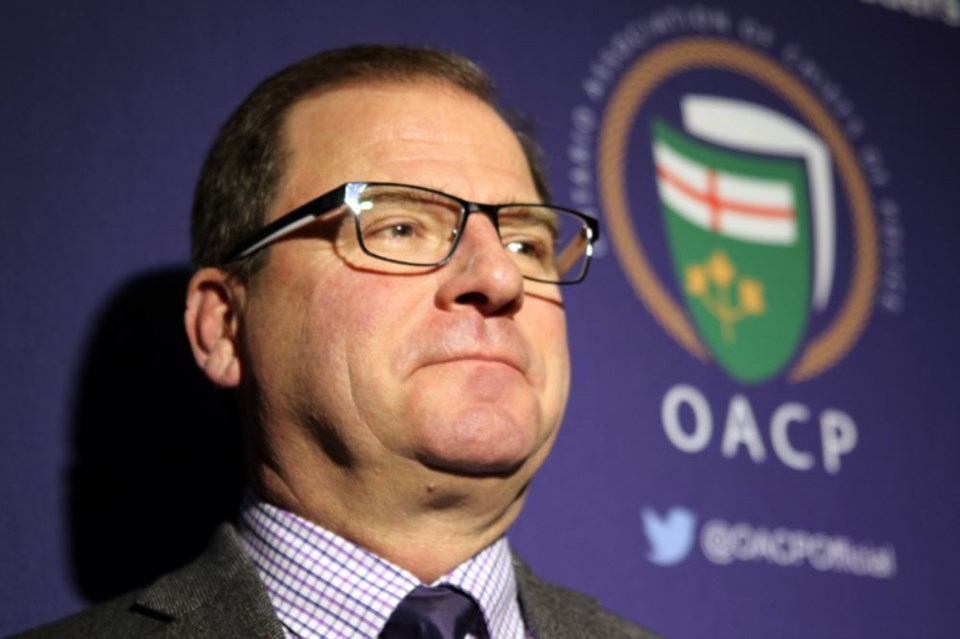THUNDER BAY – There are a number of factors that make policing in Northern Ontario different than in the rest of the province.
The Ontario Association Chiefs of Police are holding a board meeting in Thunder Bay this week and started their trip to Northwestern Ontario with a tour of selected remote First Nations communities on Monday.
Jeff McGuire, association president and chief of the Niagara Regional Police Service, said the realities of policing in remote communities is much different than in busy city centres.
Between dealing with fewer resources and having tighter relationships with community members, it’s clear things have to be done differently.
“It’s a different kind of policing altogether than it is in large urban areas,” McGuire said in a Tuesday morning interview.
“This is a very unique situation. The officers have to grow and learn with the community and like all of us earn the respect of the community. But their decision making process would be different than somebody working a big urban area.”
Thunder Bay Police Service chief J.P. Levesque, who is also the association’s vice-president, said this is the first time the board has been in the region since 2011.
Having them witness the conditions and circumstances of northern policing helps create an understanding of the issues those forces encounter.
“We feel it is important police leaders from across the province see the uniqueness of policing in Northern Ontario, particularly the (Nishnawbe Aski Nation Police Service). They are significantly challenged in a number of different perspectives and it’s important the rest of our colleagues across the province get a sense of that,” Levesque said.
The agenda for the two-day meeting includes discussion around the provincial government’s new legislation to ban a practice known as street checks or carding.
If the legislation passes through Queen’s Park, during voluntary interactions officers have to inform members of the public why they’re requesting information as well as their right to not talk and can walk away without that being used against them.
That only applies to arbitrary stops. Police can still gather personal information during normal traffic stops or when they are making an arrest.
The changes don’t sit well with many members of the policing community.
“I don’t see the legislation making it a safer Ontario. In fact, I think it’s going to make policing significantly more challenging. It’s an issue, it’s frustrating for us as police leaders,” Levesque said.
“(The government) consulted with us and really chose not to listen to what we had to say.”
Levesque added the regulations are cumbersome and can lead to problems if members of the public aren’t educated and informed about when they apply.
Another topic of conversation will be about looking at advocating for changes to the Police Services Act for suspended officers.
Currently, if an officer is accused of a significant criminal offence they are likely to be suspended without pay pending resolution of the case.
Levesque wants the officers to not be paid while off work.
“Being on the payroll for two, three, four years at a time while waiting to go through court is unacceptable. I think the taxpayers would agree with me it’s an unacceptable position to be in,” he said.
